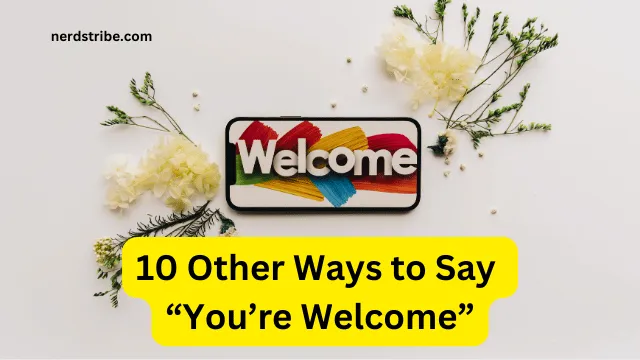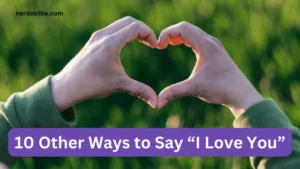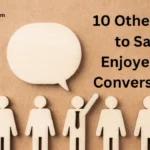How often do you respond to someone’s gratitude with the same old “You’re welcome”? While it’s polite and functional, it can sometimes feel repetitive or lack the warmth and thoughtfulness that certain situations deserve. Communication isn’t just about words—it’s about connection, and the way we respond to a simple “Thank you” can make a big difference in how we are perceived.
In personal relationships, choosing your words carefully shows how much you care, while in professional settings, the right response can demonstrate emotional intelligence and professionalism. Exploring alternatives to “You’re welcome” adds variety and nuance to your conversations, making them more engaging and meaningful. It’s a small adjustment that reflects attention to detail and personality.
This blog will guide you through 10 other ways to say “You’re welcome” that fit a variety of scenarios, from casual chats to formal exchanges. Whether you want to sound approachable, professional, or heartfelt, these alternatives will give you the tools to make a better impression every time someone thanks you.
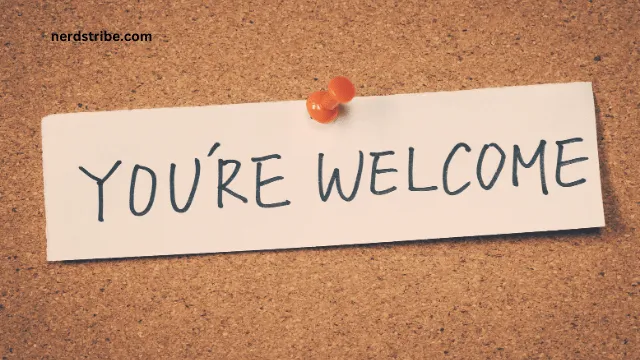
Contents
- 1 1. No Problem
- 2 2. My Pleasure
- 3 3. Happy to Help
- 4 4. Anytime
- 5 5. Don’t Mention It
- 6 6. It Was Nothing
- 7 7. Glad I Could Help
- 8 8. Of Course
- 9 9. You Bet
- 10 10. Not at All
- 11 Conclusion
- 12 FAQs
- 12.1 Why is it important to use alternatives to “You’re welcome”?
- 12.2 Are these phrases suitable for formal situations?
- 12.3 Can I mix and match phrases depending on context?
- 12.4 Is “No problem” always appropriate?
- 12.5 What’s the most versatile alternative?
- 12.6 How can I ensure my response sounds genuine?
1. No Problem
A widely used response that’s both friendly and relaxed.
- Key Meaning: Indicates that the task was no inconvenience or trouble.
- Usage: Best suited for informal settings with friends, family, or colleagues.
- Additional Info: While casual, this phrase might not always be ideal for formal settings as it could imply the other person’s thanks were unnecessary.
2. My Pleasure
A refined and professional alternative that exudes warmth.
- Key Meaning: Shows genuine happiness in helping or providing assistance.
- Usage: Ideal for professional environments, customer service, or formal conversations.
- Additional Info: It leaves a positive impression as it emphasizes your willingness to serve.
3. Happy to Help
A compassionate phrase that highlights your readiness to assist.
- Key Meaning: Demonstrates your eagerness to support someone in need.
- Usage: Works perfectly in work settings, team collaborations, or charitable scenarios.
- Additional Info: This response reinforces your helpful attitude and positions you as approachable.
4. Anytime
A simple yet meaningful way to show you’re available for future support.
- Key Meaning: Indicates openness and reliability in helping again.
- Usage: Commonly used among friends or in close-knit relationships.
- Additional Info: It builds trust and shows that you’re dependable for ongoing assistance.
5. Don’t Mention It
A humble and traditional phrase to minimize the act.
- Key Meaning: Downplays the effort you made and shifts the focus away from yourself.
- Usage: Great for casual interactions where you want to keep things light.
- Additional Info: Be cautious, as it might seem dismissive in situations requiring formality.
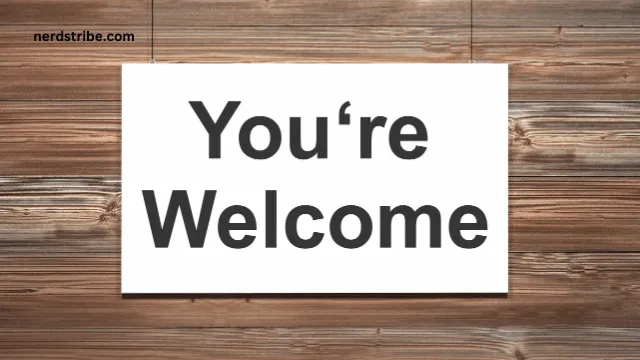
6. It Was Nothing
A modest and self-effacing response to make the person feel at ease.
- Key Meaning: Suggests the action was effortless and doesn’t warrant excessive gratitude.
- Usage: Suited for minor favors or tasks that didn’t require much effort.
- Additional Info: It’s polite but may not be suitable for situations where you want to emphasize your commitment.
7. Glad I Could Help
A thoughtful phrase that expresses genuine satisfaction in being helpful.
- Key Meaning: Combines politeness with acknowledgment of the act.
- Usage: Works well in both personal and professional settings where sincerity is key.
- Additional Info: This phrase is particularly effective when the favor required time or effort.
8. Of Course
A natural and sincere alternative that conveys willingness.
- Key Meaning: Suggests that helping was an obvious and effortless choice.
- Usage: Ideal for personal relationships or situations requiring casual politeness.
- Additional Info: This phrase works well when you want to reinforce the strength of your bond or friendship.
9. You Bet
A lively and enthusiastic response perfect for informal conversations.
- Key Meaning: Reflects excitement and energy in being thanked.
- Usage: Suitable for friends, peers, or light-hearted exchanges.
- Additional Info: This phrase is more commonly used in American English and conveys a fun tone.
10. Not at All
A polite and understated response emphasizing the ease of the favor.
- Key Meaning: Suggests that the act of helping was so minor it doesn’t deserve recognition.
- Usage: Often used in formal settings or with acquaintances.
- Additional Info: It maintains professionalism while being gracious and polite.
Conclusion
The way we respond to “Thank you” may seem small, but it plays a significant role in shaping how others perceive us. Choosing alternatives to “You’re welcome” adds depth to your interactions and can make someone feel truly appreciated or comfortable. Whether you’re aiming to sound friendly, professional, or thoughtful, having a repertoire of phrases helps you adapt to different situations with ease.
Key Takeaways:
- Context matters: Match your response to the tone and relationship.
- Be genuine: Authenticity enhances any response you choose.
- Variety adds impact: Avoid sounding repetitive by using different phrases.
By learning and practicing these alternatives, you’ll not only elevate your communication but also foster stronger, more meaningful connections in every interaction. So the next time someone says “Thank you,” don’t just say “You’re welcome”—choose a response that truly resonates.
FAQs
Why is it important to use alternatives to “You’re welcome”?
Using alternatives prevents your conversations from feeling monotonous and shows effort in your communication, making interactions more personal.
Are these phrases suitable for formal situations?
Yes, phrases like “My pleasure” and “Not at all” are excellent choices for professional or formal environments.
Can I mix and match phrases depending on context?
Absolutely. Tailoring your response based on the situation and the person enhances its impact.
Is “No problem” always appropriate?
While casual and friendly, it may not fit formal settings as it can downplay the other person’s gratitude.
What’s the most versatile alternative?
“Of course” works in nearly every situation, offering sincerity and adaptability.
How can I ensure my response sounds genuine?
Pay attention to your tone, body language, and the context. Speaking with warmth and sincerity always enhances your response.

